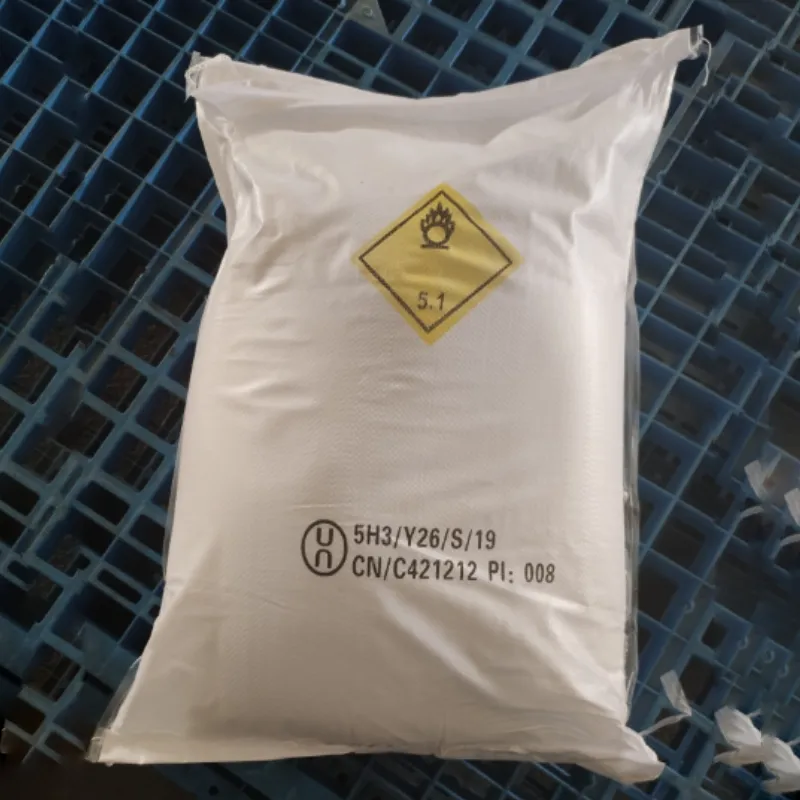
Understanding E570 Food Additive and Its Uses in Food Industry
Understanding E570 A Common Food Additive
E570, commonly known as stearic acid, is a food additive that plays a significant role in the food industry. It is a saturated fatty acid that occurs naturally in various animal and plant fats. This compound is particularly valued for its emulsifying properties, helping to stabilize mixtures of oil and water in food products.
Sources of E570
Stearic acid can be derived from both animal and vegetable sources. In animals, it is found in meat, poultry, and dairy products. On the plant side, it is present in various oils such as cocoa butter, shea butter, and palm oil. Given its plant-based origins, stearic acid is often favored in vegetarian and vegan formulations, contributing to its popularity in certain food products.
Function in Food Products
In the realm of food technology, E570 serves multiple purposes. Primarily, it acts as an emulsifier, a crucial ingredient in processed foods that require the combination of different ingredients that typically do not mix. For instance, it is frequently used in the production of chocolates to maintain a smooth texture and prevent the separation of cocoa solids and fats. Additionally, E570 aids in improving the mouthfeel of products such as ice creams and whipped toppings.
Moreover, E570 has applications as a stabilizing agent, helping to prolong the shelf life of food products by maintaining their consistency and preventing spoilage. It finds its way into a myriad of products, ranging from baked goods to sauces, ensuring that they remain appealing and enjoyable to consumers.
Safety and Regulation
e570 food additive

The addition of food additives to edibles raises concerns about safety. However, E570 has been assessed and deemed safe for consumption by various food safety authorities worldwide, including the European Food Safety Authority (EFSA) and the Food and Drug Administration (FDA) in the United States. These organizations outline acceptable daily intake levels to ensure consumer safety, reinforcing the idea that E570 can be consumed without adverse effects in moderation.
Nevertheless, as with any food additive, there can be individual sensitivities or reactions. Therefore, consumers with specific dietary restrictions or allergies should always check ingredient labels, particularly if they are avoiding certain fats or animal-derived products.
The Broader Implications
The use of E570 reflects broader trends in the food industry toward maintaining quality and consistency in processed foods. With consumer preferences driving demand for more natural and clean-label products, food manufacturers are increasingly seeking alternatives that meet these demands while still adhering to regulatory standards.
In recent years, there has been a push for transparency in food labeling, prompting many brands to reformulate products to reduce the number of additives. E570 continues to be a relevant player in this landscape, as it often appears in formulations that prioritize texture, stability, and shelf-life without overshadowing natural flavors.
Conclusion
E570, or stearic acid, is a versatile food additive essential for achieving desired textures and stability in a variety of food products. While it constitutes a synthetic element added to processed foods, its origins in natural fats assure consumers of its foundational roots. As the food landscape continues to evolve, staying informed about the roles of such additives can help consumers make better choices, balancing enjoyment with health considerations. With continued regulatory oversight and consumer demand for quality, E570 is likely to remain a staple ingredient in the food industry for the foreseeable future.
-
Pure Sodium Dichloroisocyanurate Dihydrate | Powerful DisinfectantNewsAug.29,2025
-
Industrial Chemicals: Quality & Purity for Every IndustryNewsAug.28,2025
-
Nitrile Rubber Honoring Strict Production StandardsNewsAug.22,2025
-
Aspartame Ingredients Honoring Food Safety ValuesNewsAug.22,2025
-
Fertilizer for Balanced Plant NutritionNewsAug.22,2025
-
Cyanide Gold Processing with High Purity AdditivesNewsAug.22,2025
-
Formic Acid in Textile Dyeing ApplicationsNewsAug.22,2025
Hebei Tenger Chemical Technology Co., Ltd. focuses on the chemical industry and is committed to the export service of chemical raw materials.
-

view more DiethanolisopropanolamineIn the ever-growing field of chemical solutions, diethanolisopropanolamine (DEIPA) stands out as a versatile and important compound. Due to its unique chemical structure and properties, DEIPA is of interest to various industries including construction, personal care, and agriculture. -

view more TriisopropanolamineTriisopropanolamine (TIPA) alkanol amine substance, is a kind of alcohol amine compound with amino and alcohol hydroxyl, and because of its molecules contains both amino and hydroxyl. -

view more Tetramethyl Thiuram DisulfideTetramethyl thiuram disulfide, also known as TMTD, is a white to light-yellow powder with a distinct sulfur-like odor. It is soluble in organic solvents such as benzene, acetone, and ethyl acetate, making it highly versatile for use in different formulations. TMTD is known for its excellent vulcanization acceleration properties, which makes it a key ingredient in the production of rubber products. Additionally, it acts as an effective fungicide and bactericide, making it valuable in agricultural applications. Its high purity and stability ensure consistent performance, making it a preferred choice for manufacturers across various industries.





